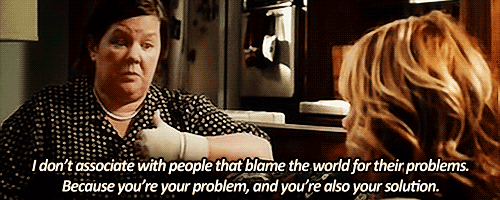This post is a follow-up to an unanswered question from GovLoop’s recent training, Critical Conversations. Want more topics and information like this? Make sure to register for our upcoming training summit in July, the Next Generation of Government Training Summit.
While my distaste for cilantro is legendary and I’d rather clean a chicken coop than watch a romantic comedy movie, I’ve never been a hater. While I’m a bit cynical, I’ve learned the value in suggesting solutions whenever I feel there’s a problem that needs tending.
Haters are people who enjoy pointing out flaws. The trouble is when haters get fixated, they’re unable to see beyond perceived problems or take action toward solutions. When haters are relentless, their negativity can shut down progress and stifle creativity in themselves and others. At their worst, haters make it personal, focusing on pointing out the shortcomings and failures of other people for no other reason than to make someone else feel bad.
Haters can be truly difficult people to work with. While there’s no simple solution, here are ways you can start dealing with the haters in your life:
Accept that haters will indeed hate
The first step to coping with haters in the workplace is acceptance.
A psychological study of people’s “dispositional attitude” showed that people who already have many negative views tend to dislike new things and experiences. Or, as researchers Justin Hepler and Dolores Albarracin put it, “an attitude is not simply a function of an object’s properties, but it is also a function of the properties of the individual who evaluates the object.”
That’s right, science has proven that haters are indeed going to hate. It’s in their nature and their behavior is downright predictable.

Change how you respond to haters
My favorite piece of advice to share is one that’s relevant to many situations involving work, life, love, and haters:
You can’t change other people.
You can only change how you respond to them.
Haters may never change and, even if they do, it’s not likely to be because of something you say or do.
Rise above the hate by continuing to do what you do. Be happy with who you are and be confident in your work. Don’t let haters cause you to doubt yourself. Learn to distinguish between hateful critics and people offering constructive criticism.

Help haters focus on solutions
Recently, researchers at Michigan State University discovered that haters in the workplace are potentially dooming themselves with their doom-and-gloom attitude.
These haters—people who point out problems, without suggesting solutions—can become “mentally fatigued and defensive.” The result? The emotional baggage may make them less productive, which is bound to hinder their career.
The lead researcher, Russell Johnson, describes the problem:
The moral of this story is not that we want people to stop raising concerns within the company, because that can be extremely beneficial. But constantly focusing on the negative can have a detrimental effect on the individual…The irony of that is, when people are mentally fatigued they’re less likely to point out problems anymore. In addition, their own work performance suffers, they’re less likely to be cooperative and helpful, and they even exhibit deviant behaviors such as being verbally abusive and stealing from the employer.
Following his own advice to be solution-oriented, Johnson suggests that employers “consider rewarding employees who point out problems that lead to improvements.”

Let the hate flow
If someone is a dedicated hater, rather than struggling to get them to be more positive or supportive, put their hater tendencies to work.
Researchers Hepler and Albarracin have continued to study haters and likers, and found out that being a hater can have an upside. Haters, or those with “negative dispositional attitudes,” tend to spend their time doing fewer activities.
It’s not that haters are slacking off. Rather they’re more likely to focus on doing the few things they actually enjoy. This means that haters are less distracted and can develop a higher skill level.
Find out what haters don’t hate doing and let them give that their full attention.

Heave ho the hostile haters
Sometimes people are simply hateful. If haters in the workplace get hostile, relentless, or simply nasty, it’s time to turn to their manager or to the HR department for help. Be ready to discuss specific examples of their problematic behavior and how it is negatively affecting the workplace.
Personal attacks and harassment should never be tolerated. Being a hater is no excuse.

Lauren Girardin is a marketing and communications consultant, writer, and trainer. Find her on Twitter at @girardinl.





In response to: “Heave ho the hostile Haters: Sometimes people are simply hateful. If haters in the workplace get hostile, relentless, or simply nasty, it’s time to turn to their manager or to the HR department for help. Be ready to discuss specific examples of their problematic behavior and how it is negatively affecting the workplace. Personal attacks and harassment should never be tolerated. Being a hater is no excuse.”
I am currently a retired Army Platoon Sergeant, Disabled Veteran, and Federal Police Officer.
I have seen numerous occasions, within federal systems, in which “Haters” and/or self-serving employees are often referred to HR, or Management, for their behaviors or actions which harm the departments/elements, facilities/companies, and employees/Service Members with which they work.
In a large number these occasions, I have witnessed the destructive employees are promoted to a leadership position through either experience gained while being reassigned to other departments (while under investigations or suspensions) or simply by their current management giving a better than deserved reference to get them out of the department.
“Heave ho-ing” federal employees is often a matter of making the troublesome employee someone else’s problem, instead of addressing the root of the problem – that employee’s actions. This could be addressed by simply promptly holding them responsible for their actions; through prompt investigations, not reassigning such employees to managerial/authoritative positions, and setting a more strict time limit in which such employees can be held in reassigned positions or investigations may be processed.
I do understand that often the federal systems are overburdened with these type of investigations; yet, I truly believe and know that they may be handled more promptly and fairly with the proper supervision and management.
[…] we’ve got a few tips to help ensure the negative, fixed mindsets of others don’t destroy our own inner peace. These […]